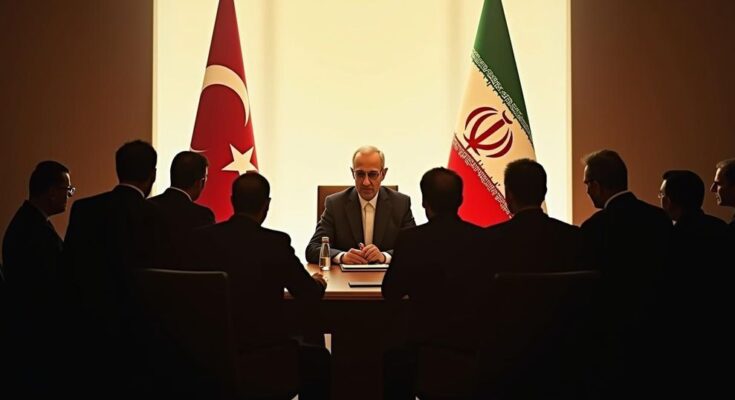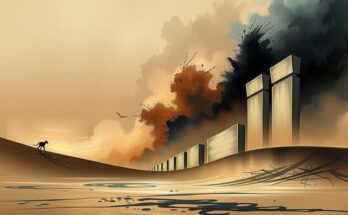Iran’s Foreign Minister, Abbas Araghchi, visited Beirut amid rising tensions following Iran’s missile attack on Israel. This visit follows Israeli airstrikes in Lebanon and comes alongside a summit in Doha where Iranian and Gulf leaders expressed intentions of improving relations. The ongoing conflict has resulted in significant casualties and a humanitarian crisis in Lebanon.
The Iranian Foreign Minister, Abbas Araghchi, arrived in Beirut on Friday amidst escalating tensions following a significant missile strike on Israel by Iran. This visit coincided with Israeli airstrikes close to Beirut’s airport and targets related to Hezbollah, particularly individuals including Hashem Safieddine, who is seen as a potential successor to the recently assassinated Hezbollah leader, Hassan Nasrallah. Araghchi’s agenda includes discussions with caretaker Prime Minister Najib Mikati and Parliament Speaker Nabih Berri, a known ally of Hezbollah. In a related event, a summit in Doha facilitated dialogue between Iranian and Gulf leaders, suggesting a thawing of relations between regional adversaries, Saudi Arabia and Iran. Iranian President Masoud Pezeshkian expressed a willingness to enhance relations with Saudi Arabia during a meeting with Saudi Foreign Minister Faisal bin Farhan, who reaffirmed Riyadh’s intent to mend ties. The Gulf Cooperation Council members declared their neutrality regarding the ongoing Iran-Israel tensions, a strategic stance amidst concerns over potential attacks on Saudi oil infrastructure. On the military front, Iran’s recent missile assault aimed at Israel was framed as a response to the assassinations of key militant figures. This provocation has prompted calls for a retaliatory response from Israeli officials. Furthermore, as hostilities escalate, the humanitarian situation in Lebanon worsens significantly, with escalating casualties reported on both sides, including that of civilians and emergency workers.
The context of these events stems from ongoing regional conflicts, particularly the long-standing adversarial relationship between Iran and Israel, coupled with the complexities of internal Lebanese politics influenced by Hezbollah. The recent violent escalations and massive military actions highlight the fragility of the situation within Lebanon and its implications on regional peace and security. The interactions between Iranian and Gulf states showcase an ongoing dynamic that oscillates between strategic rivalry and an attempt at diplomatic engagement, reflecting the intricate nature of Middle Eastern geopolitics.
In summary, the recent visit of Iran’s Foreign Minister to Beirut underscores the heightened tensions following military engagements between Iran and Israel. Concurrently, the developments at the Doha summit reflect attempts by Gulf states to navigate a path towards diplomacy amidst increasing instability. The ongoing conflict raises significant humanitarian concerns and reflects the complexity of relationships in the region, as nations grapple with a legacy of enmity while seeking avenues for cooperation and stability.
Original Source: www.middleeasteye.net




